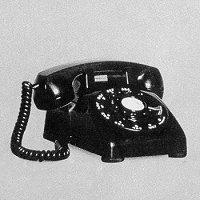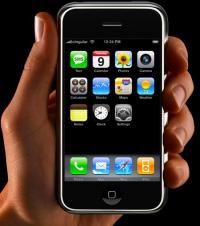

Jackie Gleason cheers as Obama ends moon visit
“One of these days, Alice… POW! Right in the kisser. Straight to the moon!”
Well, America’s favorite domestic abuser might have been a little more upbeat, were he alive to see these days. While he never succeeded in putting his his wife on the moon with a killer uppercut, it seems as though the government is finally going to help simplify the process of placing Americans on our closest celestial neighbor.
That’s right! The days of selective space travel are rapidly coming to an end. Forget about the prerequisites that have been the norm in the past, the age of space travel for the everyman is about to make a giant leap forward. No longer will it only be the super-genius scientists, who also moonlight as highly trained fighter pilots, that get a shot at landing on Luna, our turn is coming.
Let’s let El Presidente give us the low down:
If U.S. astronauts land on the moon again before 2020, it won’t be aboard a NASA spacecraft.
The space agency’s 2011 budget, released today, reveals plans to scrap the Constellation program, including the rockets and spacecraft that NASA has been developing over the past four years to replace its aging space shuttle fleet.
Constellation’s demise would mean that NASA will have no plans for manned space flight beyond the final shuttle launch in fall 2010. Instead the U.S. will have to rely on other governments, such as existing Russian craft, to ferry people to the International Space Station.
…
U.S. President Barack Obama’s decision to scrap the program is based on Constellation being “over budget, behind schedule, and lacking in innovation due to a failure to invest in critical new technologies,” according to a statement posted on the White House Office of Management and Budget Web site.
This is absolutely awesome! I predict that we can’t even imagine what is just around the corner in terms of manned space flight now that the government is getting out of the way. The power of the individual seeking profit is about to be on full display.
Hmmm… Let me attempt to give you a hand at visualizing what this news means to space-faring.
For many, many, many years, the government endorsed a monopoly. The name of the organization which benefited was the Bell System, more commonly known as “Ma Bell”.
A quick wiki link for background:
In 1934, the government set AT&T up as a regulated monopoly under the jurisdiction of the Federal Communications Commission, in the Communications Act of 1934.
As a result, by 1940 the Bell System effectively owned most telephone service in the United States, from local and long-distance service to the telephones themselves. This allowed Bell to prohibit their customers from connecting phones not made or sold by Bell to the system without paying fees. For example, if a customer desired a type of phone not leased by the local Bell monopoly, he or she had to purchase the phone at cost, give it to the phone company, then pay a ‘re-wiring’ charge and a monthly lease fee in order to use it. An oft-heard remark at the time was “Ma Bell has you by the calls”.
In 1949, the United States Department of Justice alleged in an antitrust lawsuit that AT&T and the Bell System operating companies were using their near-monopoly in telecommunications to attempt to establish unfair advantage in related technologies, especially the fledgling computer industry. The outcome was a 1956 consent decree limiting AT&T to 85% of the United States’ national telephone network and certain government contracts, and precluding the Bell System from extending its reach into the fledgling computer industry and from continuing to hold interests in Canada and the Caribbean.
The Bell System was finally put to rest in 1984.
Now, I’d like to examine the results of the government endorsed monopoly.
Beginning in 1927, customers of the Bell System were allowed to become the proud recipients of a black rotary phone. (source)
But boy, oh boy, the Bell System wasn’t done with phone technology after developing that little gem. A full ten years later, you could get the same phone, in a trendy square model!
Now, that was living, let me tell you… But, hey, don’t let the complete lack of innovation over a full decade make you think that the Bell System didn’t care about improving their product, or responding to customer needs/wants. They were hip. They were with it. And in 1963, when dial tones came into use, they showed the world that the Bell System still had it, why the Bell System was the undisputed leader in the telecommunications world (aside from the government gun, of course).
Snazzy, huh?
Essentially zero innovation, zero responsiveness to the customer, zero progress. For more than half a century.
But what happened after 1984? Didn’t the entire world just cease to communicate after the only organization who had ever supplied their phone needs suddenly disappeared?
Hmmmm…
We went from Mr. Sheen toting this in 1987:
To this, today:
What’s that, about 20 years? Three cheers for free market capitalism, eh? We went from “The Brick”, which cost like a gazillion dollars and on which a minute of talking racked up a bill that quadrupled the yearly earnings of an entire poor African village, to an iPhone or Blackberry, and just about everyone has one.
Heck, I’ve got two cell phones and I lead an obscure and unimportant life. Imagine what it must be like to be rich, eh?
Twenty years. That’s all it took once competition was introduced. The former toy of the elites is in every common man’s pocket, and the capabilities of the device are at levels only imagined in the 1960s.
(Seriously. The iPhone or Blackberry is essentially the communicator from the original Star Trek.)
Now, back to space flight.
In the 1960s, we had this:
Half a century later, cutting edge technology looks like this:
Depressingly similar to the phone situation, huh?
But now there is going to be competition in space travel. Back to the original article:
The money saved by halting Constellation would instead be used to fund robotic space missions, to help commercial companies develop manned spacecraft, and to develop new engine technologies that could eventually take astronauts beyond low-Earth orbit and into deep space.
“Imagine trips to Mars that take weeks instead of nearly a year, people fanning out across the inner solar system, exploring the moon, asteroids, and Mars nearly simultaneously in a steady stream of firsts, and imagine all of this being done collaboratively with nations around the world,” Bolden [NASA Admin — MM] said.
I am excited.
Latest posts by Mike McGowan (Posts)
- From one single father to the next - July 20, 2012
- Why isn’t anyone talking about the man - February 13, 2012
- Questions about the power of precedent - February 8, 2012
- Suffer not the Innocent to find relief - February 2, 2012
- Romney v. Newt: How the GOP and the conservative media killed the TEA Party - January 31, 2012
 Print This Post
Print This Post











I’m excited, too!
Me, too, but also wondering why “the power of the individual seeking profit” didn’t kick in decades earlier, since no one inside or outside government ever said you aren’t allowed to try to go to the moon in your own spaceship if you have the inclination and the money.
Not entirely true, Parsifal.
The US has just as strict a control on it’s airspace as anyone else. You can’t just build a rocket, then fire yourself off into space from your own backyard. Could you imagine what the Russian’s reaction would have been if an unannounced vehicle flew off into space during the Cold War?
Companies were allowed to put satellites into orbit in 1962, (The Communications Satellite Act of 1962, but the government had a strict monopoly on launches, requiring that even private corporations use NASA to launch their equipment.
Up until 1984, when Reagan signed the Commercial Space Launch Act, it was expressly forbidden for private entities to launch a space vehicle.
There is the question of the market for the product. Lots of people would probably want to go into space for a ride, but I am wondering how expensive all of the research and development is, what the massive overhead would be, the insurance, the everything to make this feasible as a service to be marketed, and how many people have the huge sums of money to pay for the tickets that would allow a company to turn a profit on this. The prices would have to be astronomical. I could apologize for the pun, but that wouldn’t excuse it.
@ Scott:
True.
That’s why I used the cell phone example. Prices used to be astronomical, now, everyone has one.
It will be exclusively for the rich. At first. It will take many years before the costs come down to the point where the average joe can afford it.
But every year that the NASA monopoly holds, that’s one year longer we’ll have to wait for it.
So, thanks to R. Reagan, in 1984 — the year Ma Bell was broken up, as you noted — you could fire your own spaceship into space if you wanted to? That’s 26 years; I was off by a decade or so.
I hold no brief for monopolies as such, but would point out that not all of the technological advances you hail can be attributed simply to the breakup of Ma Bell. After all, Ma Bell, unfit mother though she was, did some rather creative research over the years. The candlestick phone did not remain the primary model for 80 years.
Point is, some technology important to the phone simply had not come about yet — technology that was also important to and somewhat equivalent to other areas of electronics industries. Ma Bell might have held back telecommunications, but it would have had no such impeding effect on, say, computers or television. Why, then, did they not blossom in the early 1980s into the high-speed, flat screen wonders we have today. Ma Bell? No, the knowledge simply was not there — yet.
Hmmm…
According to the wiki article I cited in the post, Ma Bell *was* trying to muscle in on computers.
“In 1949, the United States Department of Justice alleged in an antitrust lawsuit that AT&T and the Bell System operating companies were using their near-monopoly in telecommunications to attempt to establish unfair advantage in related technologies, especially the fledgling computer industry.”
http://azspot.net/post/374380656/ebb-and-flow-of-idiocy-among-interweb-writers
Ironically, Mr. McGowan published these words on a medium, created by such a public sector initiative.
Even the most ignorant American must know that computers, satellites, transistors, the Internet, etc.… were all creations of the public sector.
Not to belabor pros and cons of NASA cuts (for which, irrelevantly, I’m uncertain of which path I endorse), I simply desire to focus solely on the absurdity of bashing AT&T for paucity of technology innovation.
Mr. McGowan, have you ever heard of Bell Labs? Bell Labs created the transistor. In a private laboratory, yes, but it belonged to a government sanctioned monopoly. Since it was a monopoly, it was a prodigious source of innovation, in part, because it could charge monopoly prices (in effect, a tax) to support research and development on a larger scale. After deregulation, Bell Labs became a less fruitful enterprise.
Or have you no knowledge of CERN? You know, that World Wide Web you have at your disposal to share your scrawling output — it was a CERN project.
It was not the breaking up of Bell that brought about the rapid changes in telecommunications but rather the advent & growth of the integrated circuit, satellite tecnology and the ROLM CBX. Sorry, but the technological path was already set by that one company where telecommunications was concerned.
20 years ago we had big screen TVs. It’s amazing how innovative things are in that industry, why now we have…um…big screen TVs and that’s never been regulated.
But nevertheless, we can still see what a difference 20 years can make. Why 20 years ago we had PDAs and now we have umm…PDAs that have been replaced by cell phones. Of course the PDA had nothing to do with this!
Well there’s always the music industry we can turn to. Considering everything 20 years ago in the computing world was on 5.5 inch hard drives, we’ve come a long way! Now it’s on um….smaller drives. Damn the government for slowing down innovation.
If you think there’s ever going to be inexpensive space travel in your lifetime, then you were either a) born in 2050 or b) dreaming.